How Freelance Females Can Begin to Bridge the Gender Pay Gap

Just about everyone is aware of the pay gap between men and women in the professional workplace. While this was a stark realization when news first broke, many freelance women may have thought they were exempt.
Unfortunately, new information is showing that self-employed females are actually impacted at a greater rate than those serving the corporate world.
According to a recent gender pay gap study from freelance billing platform, HoneyBook, self-employed female writers, editors, artists, designers, and other business professionals who bill for their work independently earn 32 percent less than their male compeers.

This is a dishearteningly more sizable gap than the 24 percent income disparity reported by Payscale, as well as the 19.5 percent void proclaimed by the U.S. Census calculations.
As detailed in HoneyBook's report, the average male entrepreneur on the company's platform pulls in roughly $45,000 per year. Comparable female professionals, on the other hand, only rendered about $30,000 for similar services.
Additionally, the HoneyBook report states that, ". . . despite the fact that 73 percent of creative entrepreneurs, both male and female, hold bachelor's degrees, over a third of the female creative entrepreneurs still make less than the minimum wage in 15 states."
HoneyBook Co-founder, Shadiah Sigala made a point to note that the company analyzed real data for the report:
"These are not self-reported numbers. . . We literally looked at how much people are transacting, we looked at the bank and credit card charges and what they are collecting."
For the company's 2017 Gender Pay Gap report, the organization examined and analyzed over 200,000 invoices sent to user clients through the platform. HoneyBook representatives then followed up on this data by surveying more than 3,100 of its customers to uncover if they felt the underlying divide.
"When we polled our users, the majority said they did not think there is a gender pay gap, that there is parity," Sigala explained.
This begs the question: How can females begin to bridge the gender pay gap in freelance communities?
How to Close the Gap
What may be a bit surprising is that most individuals who were surveyed stated that they don't receive resistance and are not met with haggling techniques when stating their prices to a potential client. This means that the likelihood of customers accepting a higher price if asked to do so, is high.
Furthermore, since all the study participants set their own prices and value, they are the ones who are inadvertently creating the disparity in the market. This likely points to the often cited dynamic of men being more confident in their abilities than women tend to be, and therefore, they often get away with charging more.
For women to start bridging this pay gap, they need to be more confident and concrete in their pricing strategies. If a potential client is unable to respect and accept the fee, this is clearly not a favorable partnership and should be forgone. It's the scarcity viewpoint that is most responsible for the pay disparity.
Moreover, as pricing is concerned, women are advised to start stepping out of their financial comfort zones and charge comparable prices to male counterparts. A strategy for getting more comfortable with this notion is to ask how they can create more value for clients, yet still charge accordingly.
Another way to achieve this goal is to start openly discussing finances. This means that freelancers who feel underpaid should connect with others in the same field to better understand an appropriate pricing structure. Websites like Working Not Working make freelance rates transparent; female entrepreneurs can use this as a measuring stick to understand what rates they should be charging for their services.
In the freelance arena, we are all masters of our destiny. In this space, females have been undervaluing the services they provide, and there is definite room for more abundance. If entrepreneurial women seek to empower themselves, they are wise to start by taking the appropriate steps outlined above to garner the revenue they rightly deserve.
About the Author
Austin Muhs is the founder of freelance marketplace ALMBank. He is the author for Startup Fever, a book the predicted the competing currency boom five years ago and a serial entrepreneur. Austin Muhs has a deep love for all things innovative within the economic world.
Subscribe to Our Newsletter!
Latest in Marketing








